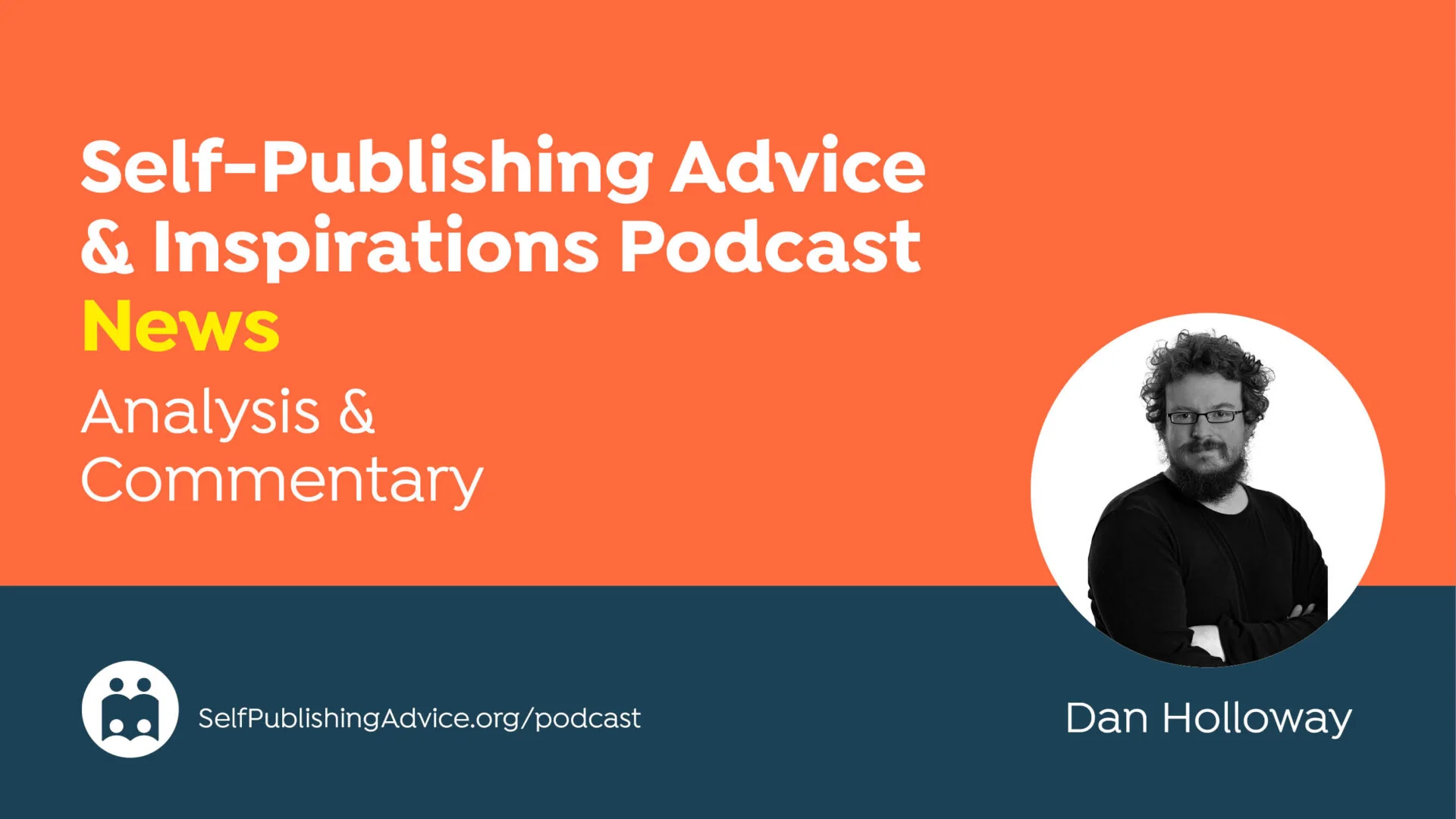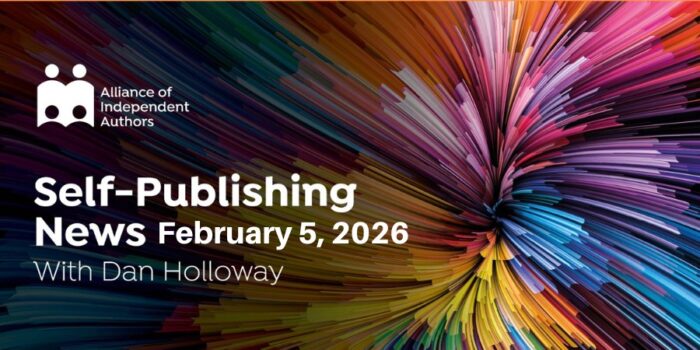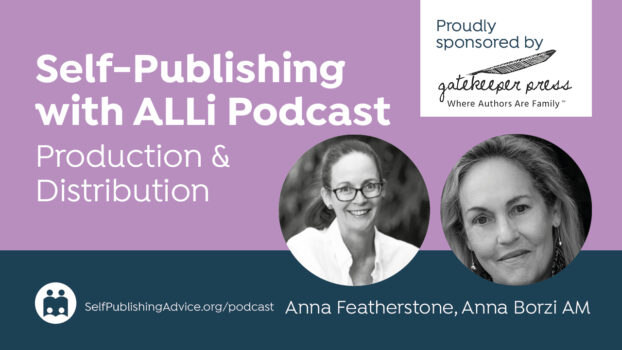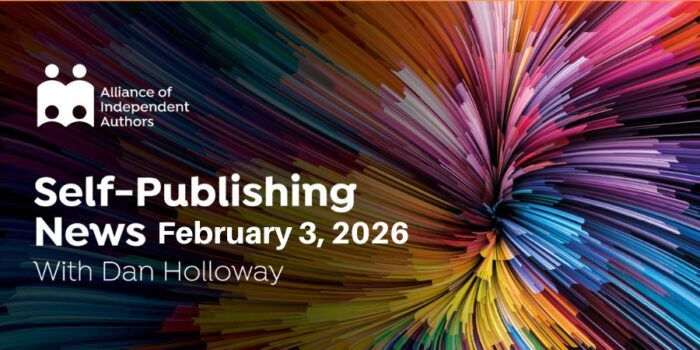Is reading in print “better?” Welcome to Self-Publishing News with ALLi News editor Dan Holloway, bringing you the latest in indie publishing news and commentary.
Find more author advice, tips, and tools at our Self-publishing Author Advice Center, with a huge archive of nearly 2,000 blog posts and a handy search box to find key info on the topic you need.
And, if you haven’t already, we invite you to join our organization and become a self-publishing ally.
Listen to Self-Publishing News: Reading in Print
Is Reading in Print ‘Better?' Self-Publishing News Podcast with Dan Holloway Share on XDon't Miss an #AskALLi Broadcast
Subscribe to our Ask ALLi podcast on iTunes, Stitcher, Player.FM, Overcast, Pocket Casts, or Spotify.
About the Host
Dan Holloway is a novelist, poet, and spoken word artist. He is the MC of the performance arts show The New Libertines, He competed at the National Poetry Slam final at the Royal Albert Hall. His latest collection, The Transparency of Sutures, is available on Kindle.
Read the Transcripts to Self-Publishing News: Reading in Print
Dan Holloway: Hello and welcome to the penultimate Self-Publishing News broadcast of the year.
Broadcast? What am I talking about? Podcast! I'm getting ideas above my station, and I haven't even been to the Christmas party today. So, welcome from Oxford, where everything is winding down, or feels as though it's winding down, to the close of the year.
Next week I will have reflections upon the year as a whole.
I had a great time earlier this week with Len from Lean Pub talking about everything that's been going on in the year for their end of year reflection on The Front Matter podcast, where we are talking, amongst other things, of the great ALLi Indie Author Income Survey.
For insights into that and everything that's been going on all year, and some fairly wild discussions, do keep an eye out for that, and make sure you tune in. We were at it for about an hour and a quarter of really great discussion on the year in publishing.
But before we look back and really go retrospective on the year, it's been quite an interesting week for news.
EU Votes Against Geo-Blocking Ban
It started off with going back to one of my favourite places, the legislature of the European Union, and the EU has voted against a geo-blocking ban, for what I call in my headline, creative screen companies, by which I mean companies like Amazon, Netflix, Hulu, Paramount, all of these screen studios who stream and otherwise distribute their content across the world. They had been exempted from the European Union's earlier ban on geo-blocking, and this was a revisit of five years down the line from that earlier ban, which I remember reporting on at the time, to see whether there was any reason why they shouldn't now be included in it.
To go back and fill in a little, geo-blocking is what happens when a company is basically able to say, we can do things over here, but we can't do them over here. So, within a block like the European Union, that means that some countries in the EU you could distribute to, other countries you might decide not to distribute to.
Obviously, one of the cornerstones of the EU is its trade without borders, so geo-blocking very much goes against the ethos of that idea, of the EU, that if something is available in one member country, it needs to be available in every member country. Whereas geo-blocking, basically, it's the opposite of that. It's saying distributors, content producers, manufacturers, companies in general, decide where they're going to distribute, and they might decide that means that they want to distribute to some countries but not other countries.
Screen companies, so Netflix, Amazon Prime and so on have actually, essentially, as they would see it, won the argument. They have not been banned from geo-blocking. Their argument was essentially around the exploitation of rights, that they would not be able fully to exploit the rights in their intellectual property if they were forced to make things available on equal terms across every country within the European Union.
So, this isn't directly about publishing, but it's obviously a really related subject to us, especially when we start thinking about streaming services, the increasing reliance on subscription and streaming.
I can see publishers and streaming platforms making very similar cases, that when it comes to the exploitation of intellectual property rights, making people distribute on the same terms to everywhere within a market block could be seen as something that is going to limit their options and limit their ability to decide what's best for their product.
So, that is very much one to keep an eye on, to see whether other industries pick up on this and go down the same route.
OpenAI Signs Deal with German Publisher
We spent the whole of last week without talking about AI. This week AI has been pretty unavoidable. Several stories around AI, I will pick out some of the highlights.
The really big highlight is that OpenAI has just signed a deal with Axel Springer. Axel Springer is a German publisher. It's a massive corporation and it owns publications like Business Insider and Politico, and the agreement will allow OpenAI to train its large language model on articles published by these imprints within Axel Springer.
It's one of the first steps towards publishers reaching agreements with AI firms.
It's a very different publisher from the traditional sort of Penguin Random House, Simon Schuster, and so on, but it is clearly something that as writers we need to follow. It's clearly the start of a trend. I think it is inevitable that most people who publish content will want to, as they are going to see it, going back to the previous subject that we were talking about, cash in on their intellectual property rights.
So, they have intellectual property in all these amazing articles that they produce, these articles are like gold dust for large language models, and that creates a real pressure on publishers to sign a deal, and it will be very interesting to see how that plays out with other publishers, but also very interesting to see how this relates to the kind of contracts that people are offered.
As I've been reporting over the last year, there's been an increase in no-AI clauses being included within publishing contracts. There's been a lot of pressure from author bodies to include no-AI clauses in publishing contracts. This is obviously a move in the other direction.
So, it might be another thing to factor in when thinking about going with a traditional publishing house, going indie. Are publishers going to start ditching authors they see as being difficult? So, might it be the case that they say, Yeah, sure, we're happy to include no-AI clauses, but all of a sudden anyone who wants a no-AI clause finds it difficult to get a publishing deal. It will be interesting to see if anything like that happens.
Google to Pay Millions to News Sites in AI Backlash
Talking of news sites, like Business Insider, Politico, and AI. Google, earlier this month, paid out a hundred million dollars to Canadian publishers who were claiming that they had lost revenue as a result of Google Bard. Google Bard, obviously, is one of Google's own generative AI models. It enables you to get information from across the web within the Google environment. So, it's the key thing. You can ask it a question about a news story, it will provide you a summary of the news relying on news content provided by other publishers, and then it will provide it for you within the Google environment without ever going to those publishers’ websites.
That means, of course, that those publishers are losing out on eyeballs and as a result of losing out on eyeballs, they are losing out on ad revenue. So, Google have agreed to pay a hundred million dollars in compensation to Canadian publishers as a result of this, and this isn't the only such action that Google is involved in.
More and more news media outlets are launching actions against Google, claiming a loss of ad revenue. The Wall Street Journal is claiming that it's going to lose 20 to 40 percent of its ad revenue if Google continues providing this sort of AI news summary service.
That again, tying back to our first story, it's very reminiscent of some of the arguments that went on about the so-called link tax that the European Union had proposed a few years ago, where publishers would have been entitled to payment for snippets of their news appearing in someone's Google Returns when they were searching for a news story.
Again, on similar grounds, this is copyrighted content. Those sites rely on people clicking through when they see a story in order to gain ad revenue. The more of that content that is replicated within the ecosystem of aggregators or search engines, the less of that ad revenue goes to those news publishers.
So again, we're starting to see a slightly more mature debate landscape, whatever you want to call it. People are starting to think through the consequences of what's happening with AI and how this is impacting on businesses. Maybe at some point they will start thinking about how it's impacting on authors. Who knows?
Study Says Print Reading is “Better” than Digital
So, talking of digital reading, that brings me to the last story, which was the number one read Guardian story at one point in the week. It is a study carried out by the University of Valencia.
It's a meta study into different types of reading. Specifically, the difference between print reading and digital reading and what this meta study, which is a study of all studies has demonstrated, is that one of the common themes through every study of different types of reading is that, as they put it, reading in print is better for you, or it creates better results than reading in digital.
I have to say, my first reaction was, what on earth is meant by better results? Reading isn't something I do necessarily to get results, it's something I do because I like reading. Does it mean that people enjoy reading in print more? Maybe they do, but that doesn't seem to be what it means.
It's a very utilitarian, functional view of reading and it's about comprehension levels. So, it seems that people's comprehension of the printed word is six to eight times better than their comprehension of the digital word. There are all sorts of reasons they propose for this.
They don't actually have any hard evidence for any of them, but the main thing that they seem to suggest that lies behind this is the fact that when we read on screen, we tend to be more distracted.
So, it's an attention issue. Obviously, attention and shortening attention has become a really hot topic recently with people claiming that long form is dead. It's the new version of the novel is dead, long form is dead, deep work is dead. It's rubbish. People I know who read their work digitally don't have a problem getting out of it what they want to get out of it.
The other thing that really comes over reading this survey is that they don't really understand what digital reading is if they think everything is about distractibility. They don't seem to have heard of Kindles, or places where you might read that don't get notifications, you don't get other things popping up, they are just digital reading devices.
So, if it's a criticism of anything, it seems to be a criticism of reading on a device that does lots of other things, so not analogous to a book. It would be like reading on a book that's also an alarm clock, or also a front doorbell, but it doesn't seem to compare reading a book to, say, reading a Kindle.
So anyway, one of the things that would be great to see in 2024, looking ahead, is better research, and that brings me back to where I started, which I will talk about in some more depth next week, which is the ALLi Indie Author Income Survey, which was one of the real highlights of the year and has started off what I hope will be a great tradition of proper longitudinal research that actually gives some meaningful data.
So, there's something we can all be cheery about, the thought of meaningful data, and I will leave that with you as your Christmas present, because next time I speak to you, it will be the run up to New Year, and we will be looking back fondly and not so fondly on all the main events of 2023.
Have a lovely festive season, everyone, and I will speak to you all next week.






Yes, reading print books is “better for you” than reading ebooks. Study after study has demonstrated that comprehension rates are greater, and it isn’t entirely a distraction problem.
I’m not sure why you can’t understand that comprehension is foundational to reading for pleasure as well as the more “utilitarian” functions of reading, like being able to comprehend advanced textbooks for college or technical documents for work. Pleasure is a byproduct of understanding, and it’s not the sole reason we read. The fact is that if students (in particular) lack reading comprehension, they don’t advance in school or life, and that is a serious problem. Our goal should always be to move people forward, not hold them back due to simplistic, ignorant beliefs and mindsets.
I’m a huge proponent of reading for pleasure, but I understand why these studies are important and the harm we’re doing to young people by encouraging them to consume the written word primarily through electronic devices.
The idea that students (or anyone) should only read for pleasure deliberately ignores other purposes that are key to better lives for everyone.